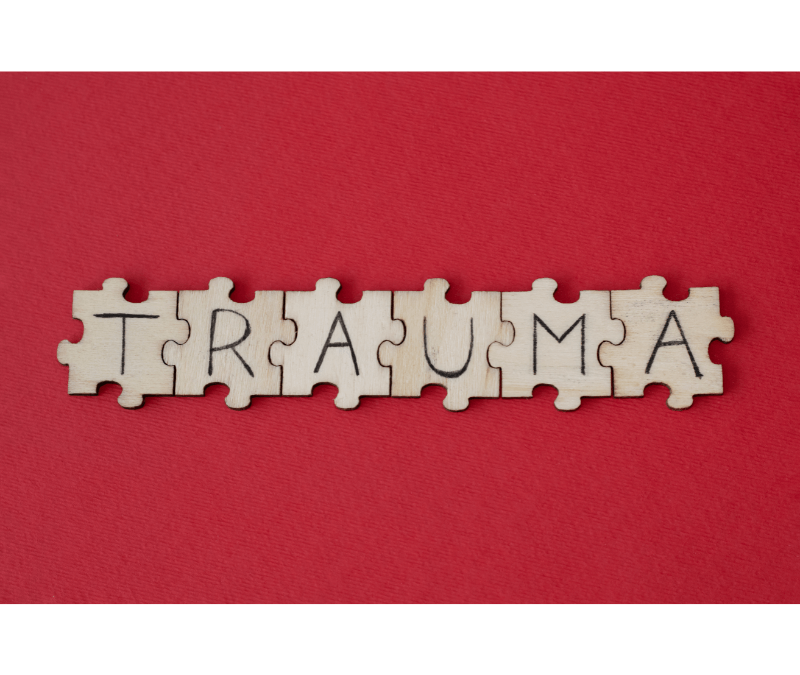We’re Dealing with Food Trauma
I host a weekly masterclass group coaching and education session in my Peaceful Plate program for hormone-positive breast cancer survivors. On a recent call one member shared this; “I feel like the whole food piece is trauma.” That beautifully honest comment launched a deep discussion about food trauma and its impact on survivors. It also made me realize I need to speak more about this! Let’s talk about the “elephant in the room” aka FOOD TRAUMA.
According to the American Psychological Association, “Trauma is an emotional response to a terrible event like an accident, crime, natural disaster, physical or emotional abuse, neglect, experiencing or witnessing violence, death of a loved one, war, and more.”
As a survivor of hormone-positive breast cancer your “terrible event” is just that. . .the cancer experience.
Keep in mind that everyone reacts differently to a traumatic event; one person’s trauma response is not everyone’s trauma response.
For the survivors I work with, food fear, anxiety or worry is a common way of attempting to “cope and manage” with their cancer experience, as well as their constant concern about recurrence (more on that below).
Why Breast Cancer Survivors Suffer Food Trauma
While there are plenty of ways to get information about what to eat or avoid after hormone-driven breast cancer, you and I both know you need more than that!
In my opinion and experience, simply knowing what to eat isn’t enough to move you beyond your constant food panic – you can follow every food list on the planet and still be crippled by food trauma.
The most effective combination for ending food trauma is tailored support, guidance and education combined with encouragement from and camaraderie with others who’ve walked the same path – I regularly witness the transformative power of this combination!
Listen. Food trauma is about one thing. CONTROL.
Honestly, was there any time in your life where you felt less in control than when you were going through breast cancer?
I would bet not.
And when everything feels out of control, what’s the easiest and most available thing to control? Your food.
It seems comforting to control foods you purchase, prepare and eat – until you realize you’re terrified to deviate even the tiniest bit from your plan – doing so would mean you aren’t in control of your food universe.
But here’s the thing.
Trying to stay “in control” only serves to accelerate your food trauma; if your food is “out of control” it can mean just one thing. . .recurrence.
Three Signs You Stuggle with Food Trauma
Hypervigilance Around Food
- Questioning every ingredient or meal prep method
- Being scrupulous about every bite of food you put into your mouth
- Worrying about foods you yourself didn’t prepare (i.e. restaurants or social events)
Worried Specific Foods Cause Recurrence
- Feeling guilty after eating “no-no” foods like chips, baked goods, candy or fried foods
- Obsessing over individual nutrients, minerals or ingredients on food labels vs considering the big picture
- Singling out individual foods like sugar, cheese or red meat as the food that will make your cancer come back
Confused by Conflicting Nutrition Messages
- Reading too many different nutrition recommendations leaves you unable to decide what’s best for your unique needs
- Basing diet decisions on the results of a single breast cancer nutrition study you found while “doing your own research”
- Bouncing from one diet approach to another in search of the perfect way to eat, yet never feeling confident you’re on the right path
What to Do?
I can’t stress this enough, p-l-e-a-s-e don’t try to resolve your post-treatment food trauma on your own!
I would imagine you’ve tried already, or if not, you’re dealing with it the best way you know how. . .by suffering silently.
The first thing I advise is to become aware of how often you experience food trauma on a daily basis; it can show up as worry about what to eat, second-guessing your food choices or feeling guilty for not eating the “right” thing.
Food trauma is insidious and can wreak havoc even without bringing you to your knees.
If you’re thinking “Food trauma seems a little dramatic for what I’m experiencing”, I encourage you to dig a little deeper.
How often do you experience any or all of these?
- Avoiding certain foods
- Overthinking simple food decisions
- Anxiety over what you ate yesterday and confusion about what to eat tomorrow
You get the picture. It’s likely that you can share food trauma experiences of your own with me! I’d love that, by the way; comment below and tell me about yours.
And if that’s the case my friend, food trauma has its claws in you – but it doesn’t have to be that way.
_________________________________________________________
Thanks for reading my blog post! Want to leave a comment? Scroll all the way down to find the comment box. 🙂
Ready to heal your post-treatment food trauma so you can eat with peace and enjoy your food again?
CLICK HERE and grab your FREE copy of The Five Foods Survivors Should Eat
CLICK THIS LINK and watch my 2-minute Peaceful Plate program video!
Follow me on Instagram @hormone.breastcancer.dietitian
This information is for educational purposes only and is not intended as medical advice. Please consult your dietitian or doctor for guidance specific to your needs.

